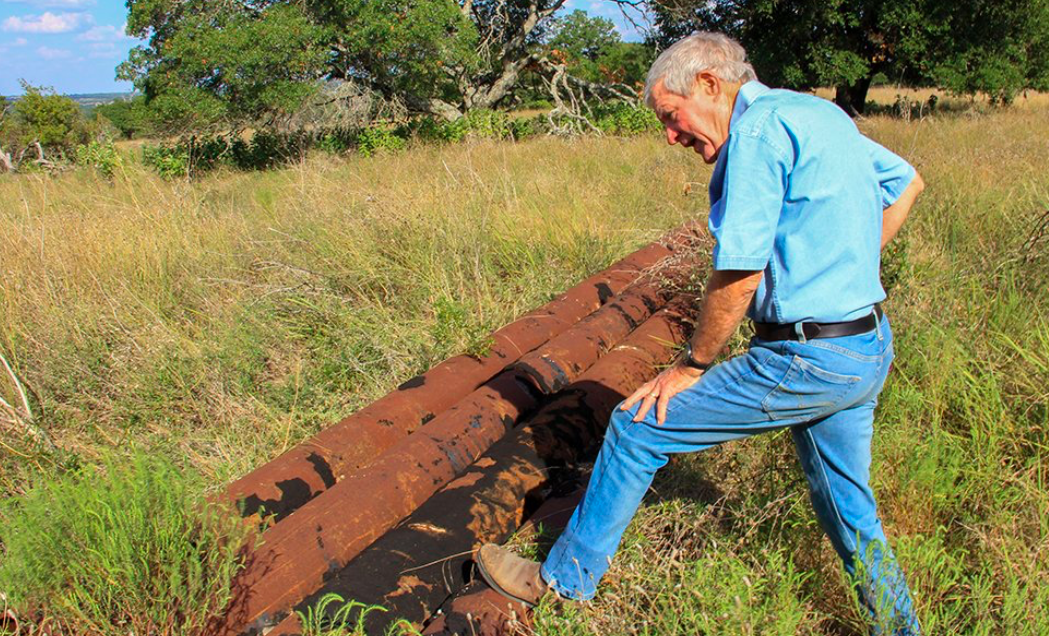In 1975, Terese Hershey, one of the state’s most influential conservationists, purchased a 1,561-acre tract of land in Stonewall, Texas. For years, she protected the property from the encroachment of nearby development. She worked with The Hill Country Land Trust to establish a conservation easement and turned to Andrew Sansom, a former Texas Parks and Wildlife director, to manage the land with his wife, Nona.
In the past eight years, the Sansoms have cleared more than 1,020 acres of cedar and invasive grasses off the property. They’ve controlled erosion along streams and managed the land’s precious water resources. They’ve also restored the property’s historic 162-year-old stone ranch house, which was left with only its limestone walls standing after a 2003 fire. All of this effort has made the Hershey Ranch the largest piece of protected land in Gillespie County.
Now, it’s under threat.
Kinder Morgan, a multi-billion dollar energy company, intends to build a 430-mile-long, 42-inch-wide pipeline—also called the Permian Highway Pipeline Project—to connect the world’s most productive oil field in West Texas’ Permian Basin to refineries near the Gulf Coast. The pipeline’s proposed path would cut through a 14-acre section of the Hershey Ranch and create a 50-foot permanent easement across about eight-and-a-half acres.
It could also impact the area’s water resources. The ranch sits atop karst, a kind of topography characterized by underground cavities, fractures, and drainage systems. This particular karstic area feeds into the Hill Country’s springs, which in turn, discharge into creeks, which then flow into the Trinity and Edwards aquifers, which supply drinking water to more than 2 million people throughout Central Texas.
The couple first found out that the pipeline would cut through the Hershey Ranch when Kinder Morgan, which is building the pipeline in partnership with EagleClaw Midstream Ventures, sent them a letter about it in October 2018. They immediately approached a lawyer.
They learned the company’s power of eminent domain supersedes the work the Hershey family did to retire the land from development. The law allows Kinder Morgan to condemn land it needs by checking a box claiming “common carrier” status on a form. By self-designating its pipeline as a common carrier—meaning the company will carry other companies’ product at set rates—Kinder Morgan gains the power to seize private land through eminent domain as a “public utility.” The Texas Supreme Court found in the 2011 case Texas Rice Land Partners v. Denbury Green Pipeline that the Texas Railroad Commission, the state’s oil and gas regulator, doesn’t even have to verify whether a company’s common carrier claim is true.
Read more from Candice Bernd with the Texas Observer here.

